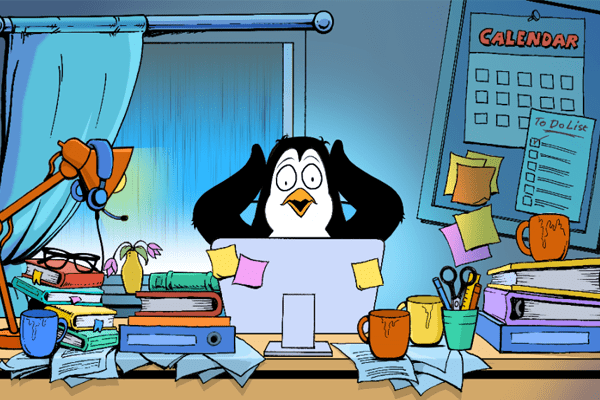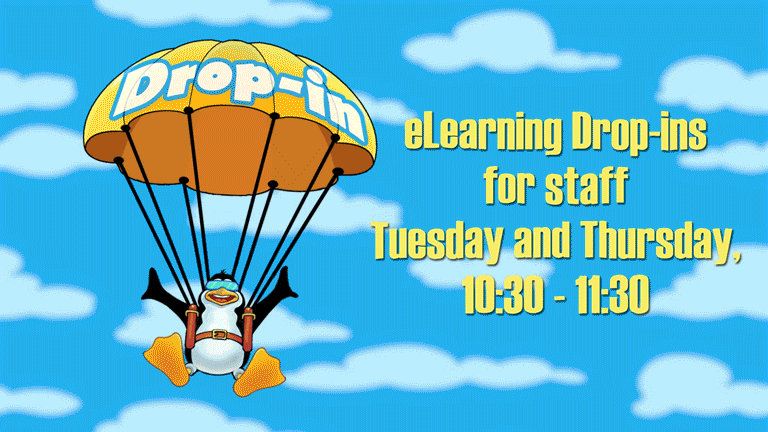Digital Education Newsletter Vol 2 Iss 2
17 May 2021
Learn more about our newest hire in CTIL, resilience and well-being in the university, socialising in a digital space, and the best shortcuts to use with Teams.

CTIL Updates
We’ve had some exciting changes within our team. Laura Gauld previously was in the role of Digital Education Support Officer. She has now been hired in the role of Principal Digital Education Officer (Services).
In her previous role, Laura:
- answered calls in Help4U
- created guides and training materials
- liaised with external vendors
- managed support services related to CTIL’s tools
In her new role (before a new Digital Education Support Officer is hired), Laura will be:
- answering calls in Help4U
- creating guides and training materials
- liaising with external vendors
- managing support services related to CTIL’s tools.
She is excited to take on this very new and different role but is confident she will adjust to the changes quickly.

Tool updates
Blackboard (My Dundee)
Blackboard version 3900.13.0 was released on 6 May 2021. There are some exciting new updates to this version including:
- Dropping grades inside categories for overall grade calculation: Instructors will be able to decide if they want to add additional rules to how their overall grade is calculated when using calculation by categories. They’ll be able to drop as many grades as they want (lowest/highest), as long as there are more items inside the category than dropped items, or to choose just the lowest or highest grade to be considered for that category.
- Unread message indication: You have probably already noticed that now you see notifications in the institution pages if you have any unread messages from your modules or organisations.
You can read about these features in more depth on Blackboard’s release notes page.

Showcase
The Doctoral Academy, Dr Sandra Oza and Dr Linda McSwiggan (recipient of this year’s Chancellor’s Awards for Outstanding Teaching award) approached CTIL with the idea of making a series of podcasts expanding on the ethos of the book Resilience in Research, co-authored by Janet Wilkinson & Dr Sandra Oza. It became apparent that the next logical step was to create a living, interactive web resource that could be used by the Doctoral students – the result was Resilience in Research.
The CTIL media team worked with Marie Paterson to capture engaging video and audio assets which were then used to populate a user friendly and eye-catching new website that is proving to be a valuable resource for developing and managing resilience and well-being across the whole university community. Content for this website was authored by Janet Wilkinson, Dr Sandra Oza and Marie Paterson
The website is broken down into the five main themes following the architecture of the book, starting with better self-knowledge so that you know where to best direct your efforts:
• Self-knowledge: it all starts with you
• Engagement: managing your work and environment
• Self-direction: seeing your work and projects through to the end
• Clarity: understanding your role and environment
• Self-confidence: building ways of believing in, and stretching, yourself
Each section contains a short description and a podcast of the topic and how it relates to building resilience.
The past year has been a challenging time for University staff and students alike and we encourage everyone to take advantage of some of the practical advice provided within this helpful resource.


Pedagogi-cool
Over the past few months, we’ve started to see a significant increase in publications related to aspects of online learning, some triggered no doubt by the pandemic, others that would have been in preparation for much longer. Many staff in Dundee have expressed concerns about student engagement and socialisation, both with their learning, and, perhaps more critically, with their peers and with staff.
We’d like to share three papers that have attracted us recently on this subject:
- Castelli, F. R., & Sarvary, M. A. (2021). Why students do not turn on their video cameras during online classes and an equitable and inclusive plan to encourage them to do so. Ecology and Evolution, 11(8), 3565–3576. https://doi.org/10.1002/ece3.7123
Many thanks to Derek Robertson (ESW) for originally sharing this – it’s something that we’ve all found useful. It looks at cameras on/off, taking into account both staff & student view points.
- O’Toole, R. (n.d.). How empathy and creativity can re-humanise videoconferencing – Robert O’Toole | Aeon Essays. Aeon. https://aeon.co/essays/how-empathy-and-creativity-can-re-humanise-videoconferencing
This is an essay from Robert O’Toole, a National Teaching Fellow from Warwick. If you’re more of a listener than a reader, there’s a podcast version.
- Aleman, A., & Sommer, I. (2020). The silent danger of social distancing. Psychological Medicine, 1–2. https://doi.org/10.1017/S0033291720002597
Finally, a look at the psychology surrounding the need for humans to connect with others.

Tippy’s updates

Fortnightly round-up
What we’re doing:
Keep an eye on this space for any upcoming workshops. In the meantime, don’t forget the weekly drop-ins! These are held every Tuesday and Thursday from 10:30 – 11:30 in the Organisation room in the eLearning Resources for Staff organisation in My Dundee.
What we’ve made:
Here are some guides we’ve made previously that may be useful as you’re marking exams.
Accessing results in Questionmark
Posting grades for Turnitin in Ultra
Reviewing Similarity Reports in Turnitin
CTIL Recommends:
“You must be mythtaken”: Learning styles is the neuromyth that refuses to go away (blog editors are Dr Helen Driscoll and Dr Rebecca Owens)
“Note-taking habits of 21st Century college students: implications for student learning, memory, and achievement” by Kayla Morehead, John Dunlosky, Katherine A. Rawson, Rachael Blasiman & R. Benjamin Hollis


